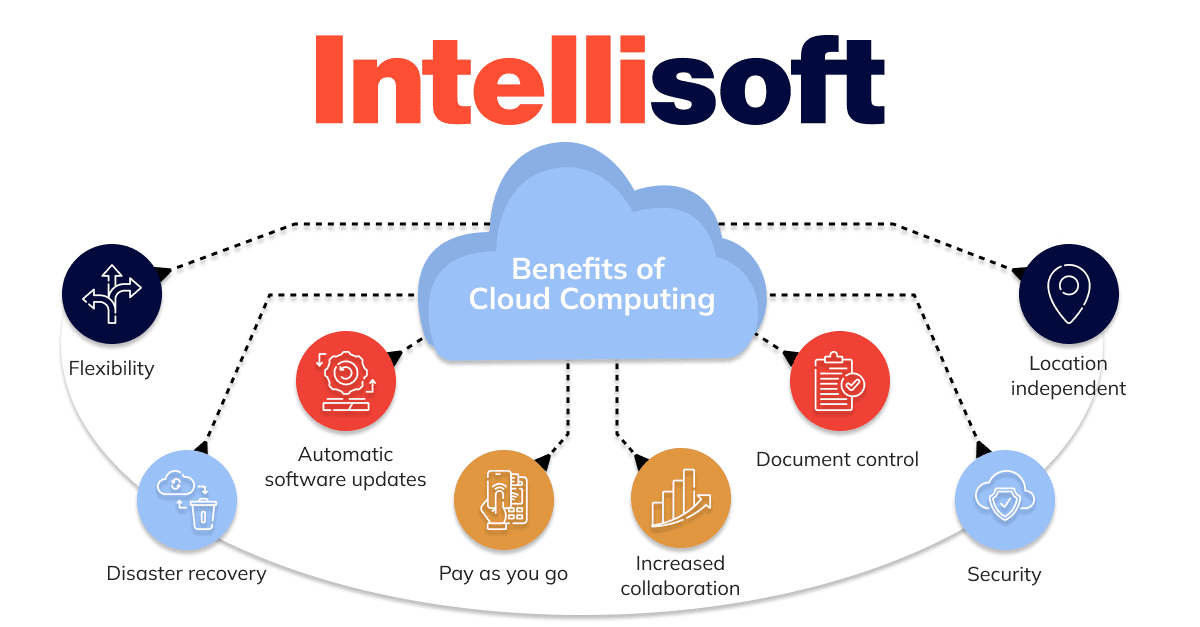In today’s fast-paced business environment, cloud-based software solutions have become indispensable. They offer numerous advantages, from cost savings to increased flexibility. This article explores the key benefits of adopting cloud-based solutions and how they can transform your business operations.

Enhanced Flexibility
One of the main advantages of cloud-based software is its flexibility. Businesses can scale their resources up or down as needed. This means you only pay for what you use. Moreover, cloud solutions support remote work, allowing employees to access data and applications from anywhere. This flexibility boosts productivity and helps companies adapt quickly to changing market conditions.
Cost Savings
Cost savings are another significant benefit of cloud-based solutions. Traditional software often requires substantial upfront investment in hardware and licenses. Cloud-based solutions, however, typically operate on a subscription model. This reduces the initial capital outlay and shifts costs to a predictable monthly expense. Additionally, cloud services eliminate the need for expensive on-site infrastructure and maintenance, leading to further savings.
Improved Collaboration
Cloud-based software enhances collaboration among team members. With centralized access to data and applications, teams can work together in real-time, regardless of their physical location. Features like shared documents and project management tools streamline workflows and improve communication. This seamless collaboration fosters innovation and speeds up project completion.
Automatic Updates
Keeping software up-to-date can be time-consuming and costly. Cloud-based solutions alleviate this concern by providing automatic updates. This ensures that you always have the latest features and security patches without manual intervention. Automatic updates also reduce downtime and improve overall system reliability.
Enhanced Security
Security is a major concern for businesses, and cloud-based solutions often provide robust security measures. Leading cloud service providers invest heavily in security infrastructure to protect data. They offer encryption, secure access controls, and regular security audits. Additionally, cloud-based solutions often have built-in disaster recovery options, ensuring data is backed up and recoverable in case of a failure.
Scalability
Scalability is a key benefit of cloud-based software solutions. Businesses can easily adjust their resources based on current needs. Whether expanding operations or downsizing, cloud solutions provide the flexibility to adapt without significant capital investment. This scalability supports business growth and helps manage fluctuating demands efficiently.
Accessibility
Cloud-based software solutions enhance accessibility by allowing users to access applications and data from any device with an internet connection. This eliminates the need for specific hardware and enables employees to work from various locations. Accessibility also ensures that businesses can maintain continuity and efficiency even in unforeseen circumstances, such as natural disasters or remote work situations.
Disaster Recovery
Disaster recovery is critical for maintaining business operations in the face of unexpected events. Cloud-based solutions often include disaster recovery services, which ensure that data is backed up and can be quickly restored. This minimizes downtime and helps businesses recover more swiftly from disruptions.
Integration with Other Tools
Cloud-based software often integrates seamlessly with other tools and applications. This integration enhances functionality and streamlines workflows. For example, many cloud solutions can connect with CRM systems, email platforms, and project management tools. Such integration improves efficiency and ensures that all systems work harmoniously together.
Environmental Benefits
Cloud-based solutions also offer environmental benefits. By leveraging cloud infrastructure, businesses reduce their need for physical servers and data centers. This reduction in hardware lowers energy consumption and decreases the carbon footprint. As a result, companies contribute to environmental sustainability while benefiting from efficient technology.
Conclusion
Cloud-based software solutions offer a range of benefits that can significantly enhance business operations. From cost savings and scalability to improved collaboration and security, the advantages are clear. Embracing cloud technology allows businesses to remain agile and competitive in today’s digital landscape. As technology continues to evolve, cloud-based solutions will likely become even more integral to business success.
Adopting cloud-based software is not just a trend; it’s a strategic move towards more efficient and flexible business operations.
